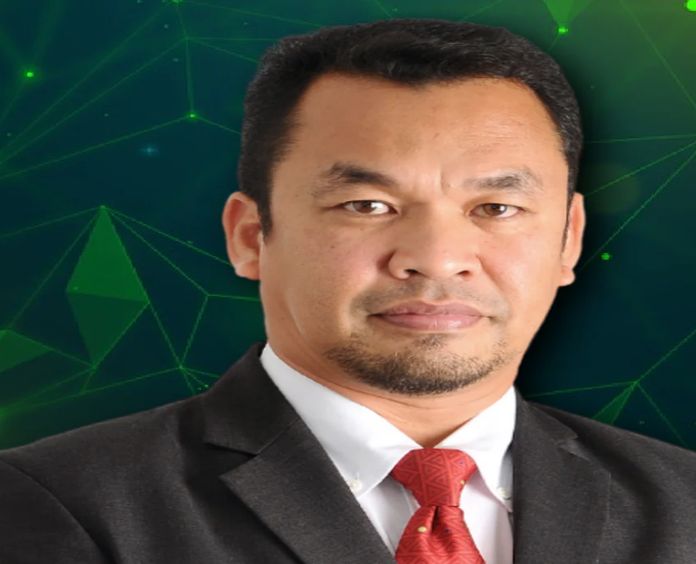– Trade and investment remain pivotal drivers of economic development
By Faizal Mohd Yusof
As we embark on our work during APEC Peru’s host year, it is crucial to contextualize our deliberations within the broader economic landscape of the Asia-Pacific.
The APEC Policy Support Unit (PSU) reports that the region’s economic growth is expected to expand slightly to 3.1 percent in 2023, following moderated growth of 2.6 percent in 2022. However, this growth is projected to slow down to 2.8 percent in 2024, reflecting the ongoing challenges and uncertainties facing our economies.
Similarly, a report by the United Nations Department of Economic and Social Affairs signals a deceleration in global GDP growth from an estimated 2.7 percent in 2023 to 2.4 percent in 2024. This underscores the persistent challenges confronting the global economy, which continue to impede progress towards the Sustainable Development Goals (SDGs).
Several underlying challenges persist despite the global economic growth surpassing expectations in 2023. Issues such as capital flight, reduced foreign direct investment (FDI), geopolitical tensions, and the escalating frequency of extreme weather events have heightened risks and vulnerabilities. Additionally, tight financial conditions pose significant threats to global trade and industrial production.
While global investment growth is expected to remain subdued – with both developed and developing economies having experienced a slowdown even before the onset of the pandemic – there are notable trends emerging, particularly in the energy sector. The investment in clean energy, for example, is experiencing steady growth, marking the third consecutive year of increase since the onset of the COVID-19 pandemic.
The Asia-Pacific region remains an attractive destination for investors despite turbulent economic conditions in the past year. Qualitative factors such as a skilled workforce and robust technology and innovation ecosystems increasingly drive investment decisions, emphasizing the region’s transition toward higher value-added services.
At the first APEC Business Advisory Council (ABAC) meeting this year, PSU highlighted that foreign direct investment inflows into the APEC region have been falling (-9 percent in 2022) despite the region’s superior performance in investment facilitation compared to the global average.
This underscores the need for proactive measures to reverse this trend. ABAC members emphasized the urgent need for action to address growing economic fragmentation, inclusion, climate action and reigniting sustainable economic growth within the region. They call for practical initiatives such as the exchange of best practices on policies and regulations fostering investment liberalization and facilitating high-quality investments. There was a further call to increase investments in green energy in the transition to net-zero economy.
Public-private partnership has never been more critical in setting the stage for another year of ambitious collaboration. It is crucial that we capitalize on our collective expertise and resources to address the economic challenges and seize emerging opportunities in light of these current circumstances. As policymakers, it is our responsibility to prioritize lasting and inclusive solutions that foster sustainable economic growth and cater to the evolving needs of our societies. We can harness our comparative advantages to exchange knowledge and best practices by leveraging APEC’s role as an incubator of ideas. Through collaborative efforts and innovative approaches, we can create an environment conducive to resilience and prosperity, benefiting people across the APEC region.
In pursuing APEC’s objectives, it is paramount that we remain steadfast in our commitment to advancing economic and technical cooperation to invigorate economic growth during this 2024 APEC host year. With a focus on trade and investment for inclusive and interconnected growth as one of its priorities, we must continue to emphasize a balanced approach while ensuring alignment with environmentally sustainable goals.
Against the backdrop of the APEC Putrajaya Vision 2040, and amidst global economic challenges, it is essential to steer APEC’s work toward greater economic and technical cooperation. This involves promoting prosperity and well-being for all the people in the Asia-Pacific region. In APEC 2024, specifically within the Investment Experts Group (IEG), we will spearhead efforts towards the 13th World Trade Organization (WTO) Ministerial Conference (MC13) and propel initiatives concerning the Free Trade Area of the Asia-Pacific (FTAAP) agenda.
This entails a commitment to furthering inclusion, sustainability and resilience under the Inclusive and Responsible Business and Investment (IRBI) agenda. It involves addressing issues such as Investor-State Dispute Settlement Reform under the International Investment Regime agenda, along with promoting investment facilitation and retention through initiatives like the new Investment Facilitation for Development (IFD) Agreement by WTO.
Trade and investment remain pivotal drivers of economic development. As we convene under the IEG forum, we must remain committed to addressing investment issues within the APEC region, aligning our efforts with the Aotearoa Plan of Action, Bangkok Goals, and the pursuit of the APEC Putrajaya Vision 2040. These principles introduced policies that promote a free, open and fair environment, along with non-discriminatory, transparent, and predictable trade and investment practices. Such policies can enhance livelihoods, promote sustainable economic growth, and foster economic integration throughout the region.
I urge all members to actively engage in discussions, share insights, and collaborate effectively to ensure our collective efforts contribute to regional growth, prosperity and impactful outcomes.
Let us make the most of this forum to evaluate and implement a comprehensive framework of work, fostering mutual trust and cooperation in line with APEC’s voluntary and consensus-building principles.





